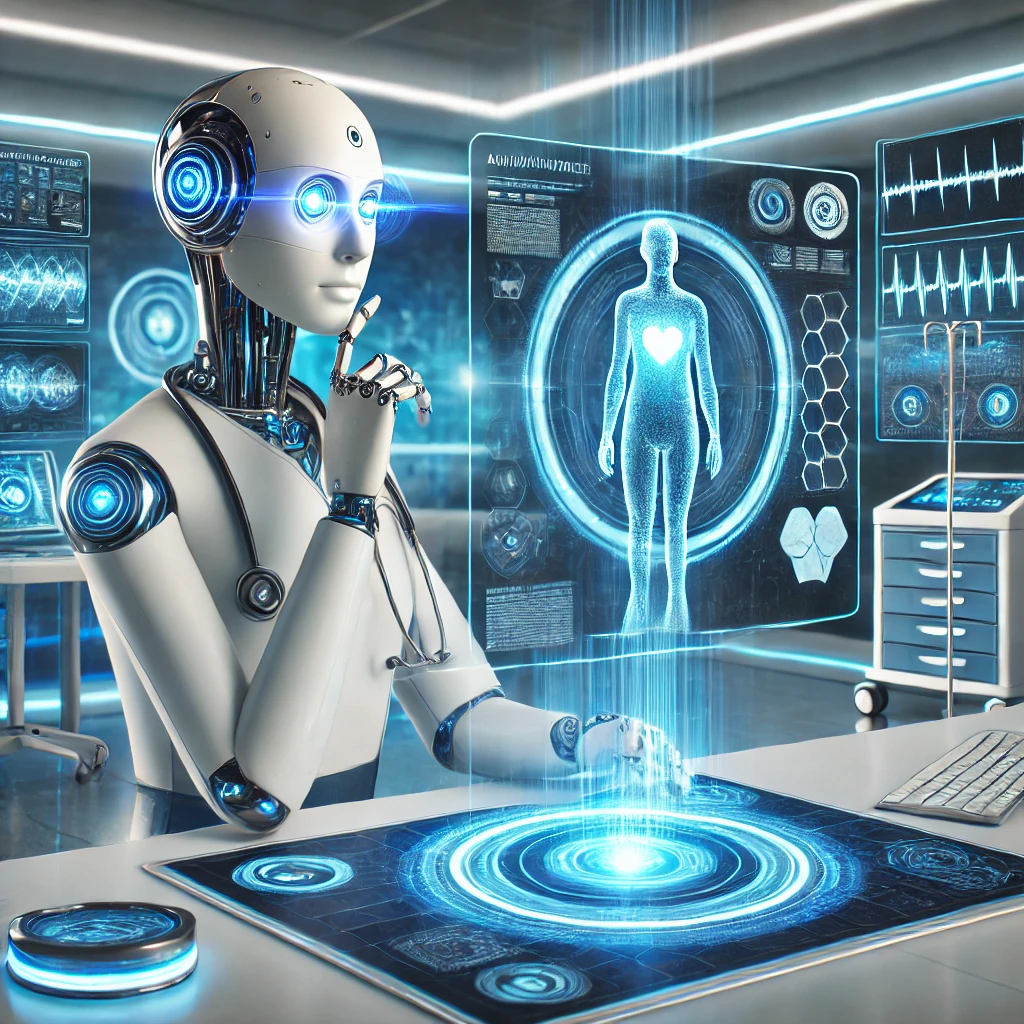10 Ways AI is Revolutionizing Health and Wellness
fevereiro 27, 2025 | by olucascash@gmail.com


Artificial Intelligence (AI) is transforming the healthcare and wellness industry, making it more efficient, personalized, and accessible. From early disease detection to personalized treatment plans, AI is reshaping the way we approach health and well-being. Here are ten ways AI is revolutionizing the field.
1. Early Disease Detection
AI-powered tools can analyze medical images and detect diseases like cancer, Alzheimer’s, and heart conditions earlier than traditional methods. Machine learning algorithms can identify subtle patterns that might be missed by human doctors, improving diagnosis accuracy.
2. Personalized Treatment Plans
AI helps in creating tailored treatment plans by analyzing a patient’s medical history, genetic information, and lifestyle. This allows doctors to recommend the most effective treatments and medications with minimal side effects.
3. Virtual Health Assistants
AI-driven chatbots and virtual assistants provide 24/7 healthcare support, answering medical queries, reminding patients to take medication, and even offering mental health support through cognitive behavioral therapy.
4. Medical Imaging and Diagnostics
AI enhances radiology and pathology by analyzing scans, X-rays, and MRIs with high precision. It helps radiologists detect anomalies faster and with greater accuracy, leading to better patient outcomes.
5. Drug Discovery and Development
AI accelerates drug discovery by analyzing vast datasets to identify potential compounds for new medications. This reduces the time and cost of developing new treatments, making medicine more accessible.
6. Remote Patient Monitoring
Wearable devices powered by AI monitor vital signs like heart rate, blood pressure, and oxygen levels. These devices alert doctors in case of abnormalities, allowing timely intervention and reducing hospital visits.
7. Mental Health Support
AI-driven applications can detect signs of depression, anxiety, and stress through voice and text analysis. These tools provide coping strategies, recommend professional help, and support individuals in managing their mental health.
8. Predictive Analytics for Epidemics
AI analyzes global health data to predict disease outbreaks and track their spread. This helps governments and healthcare providers prepare for and respond to epidemics more effectively.
9. Robot-Assisted Surgeries
Surgical robots powered by AI assist doctors in performing precise and minimally invasive procedures. These robots enhance the accuracy of surgeries, reduce recovery time, and lower the risk of complications.
10. Administrative Automation
AI automates administrative tasks such as scheduling appointments, processing insurance claims, and managing medical records. This reduces workload for healthcare staff, allowing them to focus more on patient care.
Conclusion
AI is revolutionizing healthcare and wellness by improving diagnosis, treatment, and patient care. As technology advances, AI’s role in medicine will continue to grow, making healthcare more efficient and accessible for everyone.